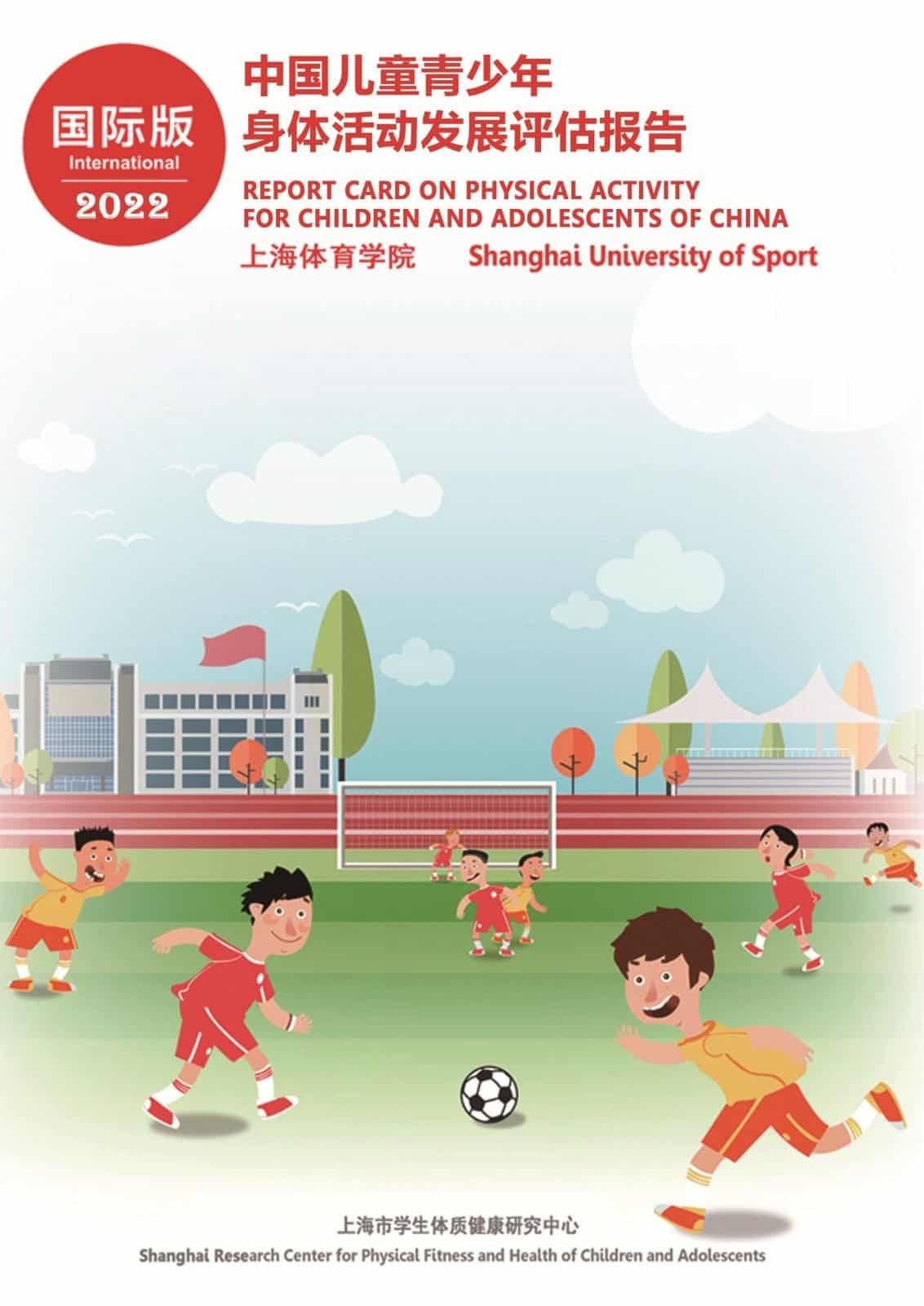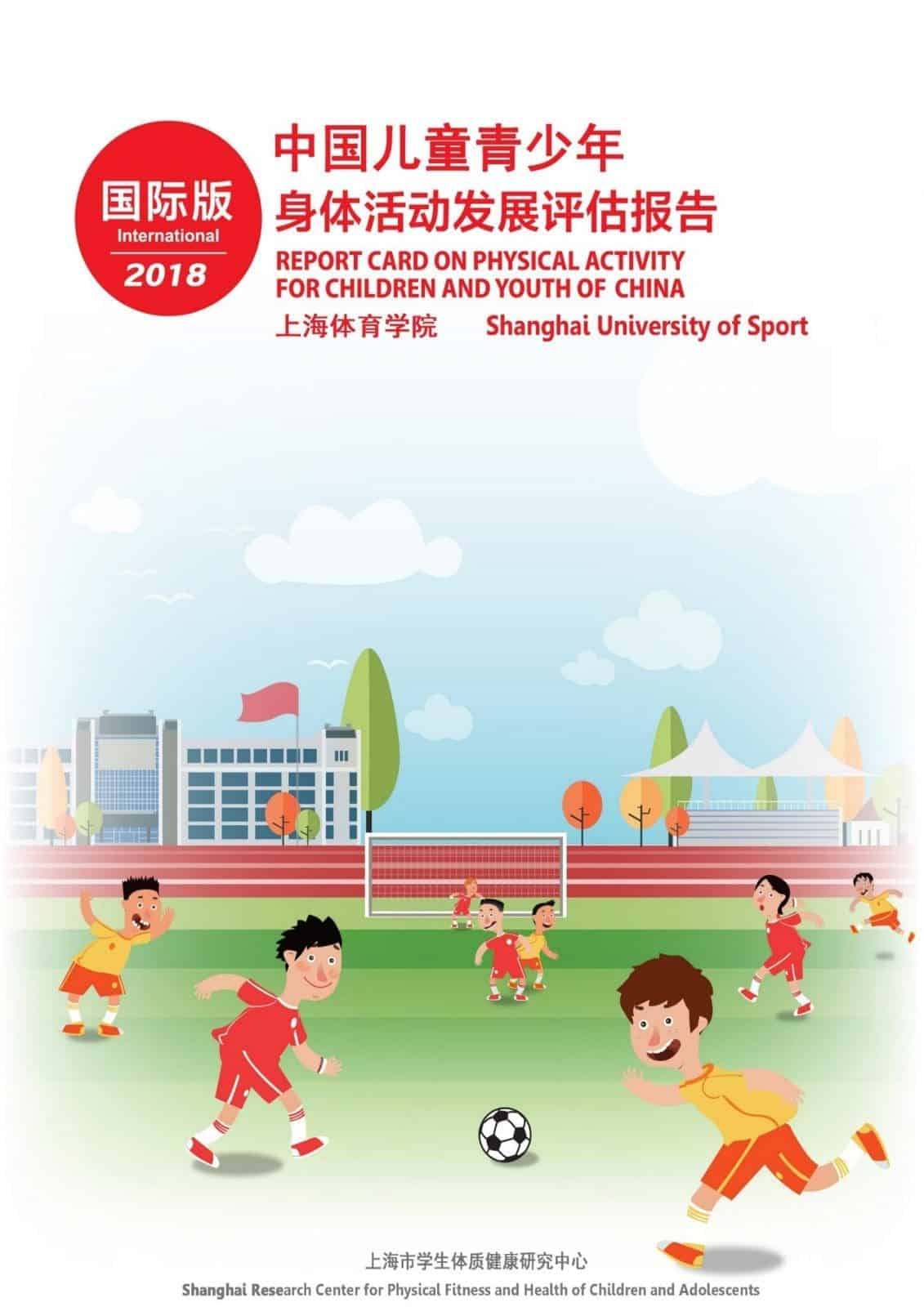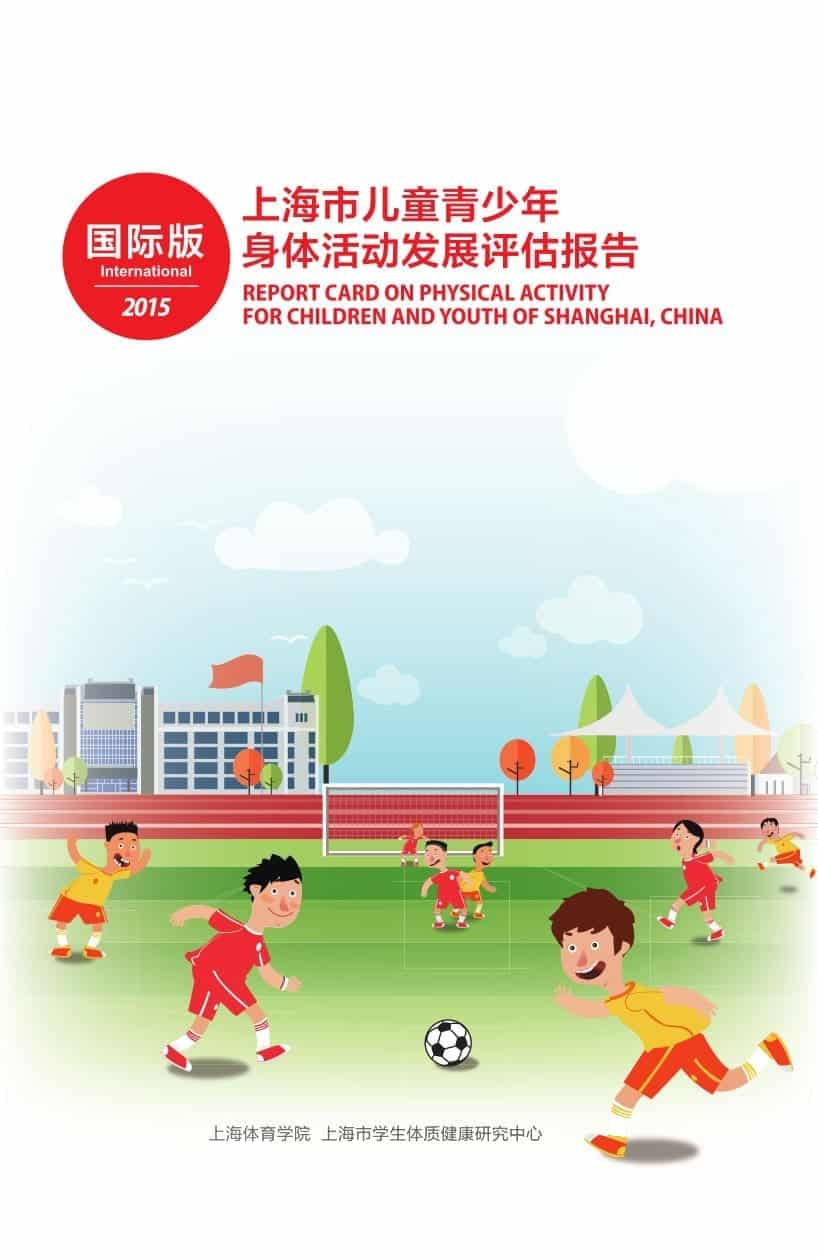
Report Card Leader
Yang Liu, PH.D.
Dr. Yang Liu is a Professor in Physical and Health Education at the Shanghai University of Sport (SUS) and a researcher in Shanghai Research Center for Physical Fitness and Health of Children and Adolescents. He got his BM in Clinical Medicine from Xinxiang Medical University, MEd in Exercise Physiology from SUS (2005) in China, MSc in Sport Science and PhD in Health Science from the University of Jyväskylä (JyU), Finland. Prior to working in SUS, he worked as an assistant researcher and a postdoc researcher at the Research Center for Health Promotion in JyU. He has published over 100 international and national peer-reviewed journal articles and 7 books. Presently, his research interests are focused on physical activity, physical fitness, fundamental movement skills and physical literacy of Chinese young people. He is passionate about promoting physical activity for Chinese young people through education, research and practical work.
Report Card Grades
- Overall Physical Activity: C
- Organized Sport and Physical Activity: F
- Active Play: C-
- Active Transportation: C
- Sedentary Behavior: D+
- Physical Fitness: INC
- Family and Peers: C-
- School: D
- Community and Environment: D-
- Government: D
Related Links
Report Card Leaders
Yang Liu, Ph.D.
Dr. Yang Liu is a Professor in Physical and Health Education at the Shanghai Univeristy of Sport (SUS) and a researcher in Shanghai Research Center for Physical Fitness and Health of Children and Adolescents. He got his BM in Clinical Medicine from Xinxiang Medical University, MEd in Exercise Physiology from SUS (2005) in China, MSc in Sport Science and PhD in Health Science from the University of Jyväskylä (JyU), Finland. Prior to working in SUS, he worked as an assistant researcher and a postdoc researcher at the Research Center for Health Promotion in JyU. He has published over 70 international and national peer-reviewed journal articles and 3 books. Presently, his research interests are focused on physical activity, physical fitness, fundamental movement skills and physical literacy of Chinese young people. He is passionate about promoting physical activity for Chinese young people through education, research and practical work.
Yan Tang, Ph.D.
Dr. Yan Tang is a Professor in Physical Education and the Director of the Academic Affairs Office at the Shanghai University of Sport (Shanghai, China). He is the Deputy Director of Shanghai Research Center for Physical Fitness and Health of Children and Adolescents, and a member of China Sport Science Society. Prof. Tang holds a doctor degree in Sport Sociology from Beijing Sport University, and master and bachelor degree in Physical Education from Southwest University, China. He is an author or co-author on over 30 peer-reviewed scientific journal articles and 4 books on physical activity and physical education of children and adolescents. At present, Prof. Tang is the principle investigator of several national and regional level research projects in evaluating physical activity and its related social context of Chinese youth.
Report Card Grades
- Overall Physical Activity: F
- Organized Sport and Physical Activity: D-
- Active Play: D+
- Active Transportation: C+
- Sedentary Behavior: F
- Physical Fitness: D
- Family and Peers: D+
- School: D+
- Community and Environment: F
- Government: F
Related Links
Top Three Priorities
- To enhance the community and the built environment role in promoting youth physical activity through difference sectors;
- To encourage youth to be active through school physical education and physical exercise;
- To facilitated government strategies and investment on promoting youth physical activity among each families.
Report Card Leader
Yan Tang, Ph.D.
Dr. Yan Tang is a Professor in Physical Education and the Director of the Academic Affairs Office at the Shanghai University of Sport (Shanghai, China). He is the Deputy Director of Shanghai Research Center for Physical Fitness and Health of Children and Adolescents, and a member of China Sport Science Society. Prof. Tang holds a doctor degree in Sport Sociology from Beijing Sport University, and master and bachelor degree in Physical Education from Southwest University, China. He is an author or co-author on over 30 peer-reviewed scientific journal articles and 4 books on physical activity and physical education of children and adolescents. At present, Prof. Tang is the principle investigator of several national and regional level research projects in evaluating physical activity and its related social context of Chinese youth.
Conference Abstract: Movement to Move
Results From China 2018 Report Card on Physical Activity for Children and Youth
Yang Liu1,2, Yan Tang1,2, Zhen-Bo Cao1,3, Jie Zhuang1,3, Zheng Zhu1,3, Xue-Ping Wu2, Yu-Jun Cai2, Li-Juan Wang2, Pei-Jie Chen1,3
1 Shanghai Research Center for Physical Fitness and Health of Children and Adolescents, Shanghai University of Sport, Shanghai, 200438, China
2 School of Physical Education and Sport Training, Shanghai University of Sport, Shanghai, 200438, China
3 School of Kinesiology, Shanghai University of Sport, Shanghai, 200438, China
Background: Physical activity (PA) is beneficial to young people’s health and development. For nearly 200 million Chinese school children, yet few study has provided national representative and international comparable evidence on their PA. Thus, the aim of this study is to present the inaugural China Report Card on Physical Activity for Children and Youth.
Methods: The data was derived from the 2016 Physical Activity and Fitness in China – the Youth Study (PAFCTYS), which was conducted in all Chinese provinces with involved a stratified three-stage cluster sample design to select a representative sample of the Chinese school-aged children population (n = 125281, grades 4-12). Self-report questionnaires were completed by the sampled students, their parents/guardians, and PE teacher (n = 1398) from each sampled school respectively. The grades of 9 report card indicators were assigned in accordance with the survey results against a defined benchmark: A is 81% to 100%; B is 61% to 80%; C is 41% to 60%, D is 21% to 40%; F is 0% to 20%.
Results: The 10 indicators were graded as follows: Overall Physical Activity Levels (F), Organized Sport Participation (D-), Active Play (D+), Active Transportation (C+), Sedentary Behavior (F), Physical Fitness (D), Family and Peers (D+), School (D+), Community and the Built Environment (F), and Government (F).
Conclusions: Levels of PA and sedentary behavior were low and below the respective recommended guidelines. Interventions and policies at the community and built environment level should be encouraged to promote physical activity and reduce sedentary behavior. In addition, national policies on young people’s PA should be advocated widely to ensure the policies can be transferred to actions.
Funding: This research is supported by the Key Project of the National Social Science Foundation of China (NO. 16ZDA227)
Report Card Grades
- Overall Physical Activity: F
- Organized Sport Participation: F
- Active Play: D-
- Active Transportation: C-
- Sedentary Behaviors: F
- Family and Peers: B
- School: B+
- Community and Built Environment: D+
- Government Strategies and Investments: D
Related Links
Recommendations
- “Sunshine Project” (Students’ daily 1h physical exercise in school) needs to be remains to increase schoolchildren’s physical activity.
- Community and the built environmental factors are urged to be improved to promote young people’s physical activity.
- Parents’ physical activity and exercise should be encouraged and their awareness of on national policies and standards of young people’s physical activity and health should be enhanced..
- Sport organization and other parties working on active play should be promoted along with the improvement of facility and equipment.
- Comprehensive assessment and evaluation on physical activity of children and adolescents should be conducted in the national level.
Report Card Leader
Yan Tang, Ph.D.
Dr. Yan Tang is a Professor in Physical Education and the Director of the Academic Affairs Office at the Shanghai University of Sport (Shanghai, China). He is the Deputy Director of Shanghai Research Center for Physical Fitness and Health of Children and Adolescents, and a member of China Sport Science Society. Prof. Tang holds a doctor degree in Sport Sociology from Beijing Sport University, and master and bachelor degree in Physical Education from Southwest University, China. He is an author or co-author on over 30 peer-reviewed scientific journal articles and 4 books on physical activity and physical education of children and adolescents. At present, Prof. Tang is the principle investigator of several national and regional level research projects in evaluating physical activity and its related social context of Chinese youth.
Testimonial
"Promoting young people’s physical activity and health have been always the priority in Chinese education and health policies. The participation of the Global Matrix for China is a great opportunity to share the information of physical activity of children and adolescents from the most populous country to the world. In addition, the comparison with other countries will push related policymakers to enhance the context of influencing physical activity of Chinese young people." - Yan Tang, Ph.D.
Conference Abstract: 6th International Congress on Physical Activity and Public Health
Results from the 2016 Shanghai (China) Report Card on Physical Activity for Children and Youth
Liu Y, Tang Y, Cao ZB, Chen PJ, Zhang JL, Zhu Z, Zhuang J, Yang Y, Hu YY
Background: Internationally comparable evidence is important to advocate for young people’s physical activity. The aim of this paper is to present the inaugural Shanghai (China) Report Card on Physical Activity for Children and Youth. Methods: The working group developed the survey questionnaire and carried out the school surveys for on students (n=71404), parents (n=70346), school administrators and teachers (n=1398). The grades of nine Report Card indicators were assigned in accordance with the survey results against a defined benchmark: A is 81%–100%; B is 61%–80%; C is 41%–60%, D is 21%–40%; F is 0%–20%. Results: The nine indicators were graded as follows: Overall Physical Activity Levels (F), Organized Sport Participation (F), Active Play (D-), Active Transportation (C-), Sedentary Behaviors (F), Family and Peers (B), School (B+), Community and the Built Environment (D+), and Government (D). Conclusions: Levels of physical activity and sedentary behaviors were low and below the respective recommended guidelines. Interventions and policies at the community level should be encouraged to promote physical activity and reduce sedentary behaviors. Future surveys random national surveys should be encouraged in order to strengthen the Report Card on Physical Activity for Children and Youth in China.









